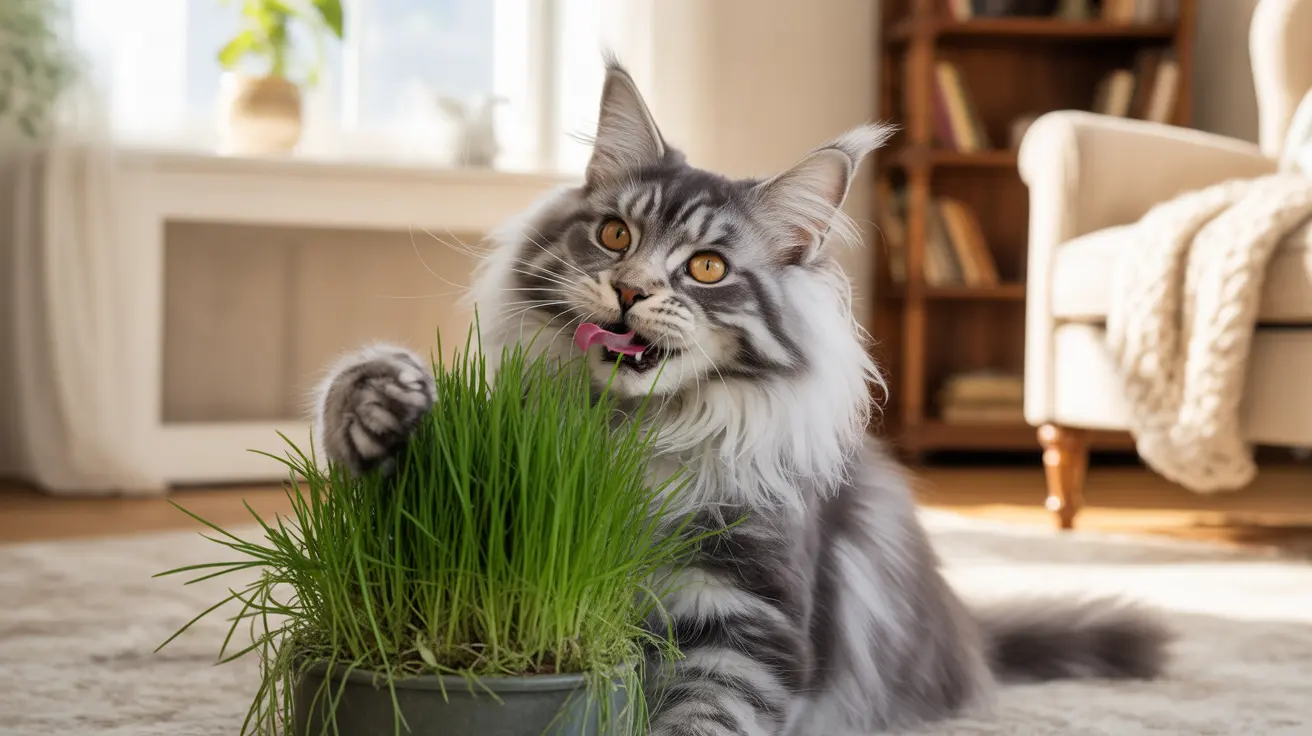For cat parents looking to enhance their feline friend's environment, catnip grass offers a unique combination of nutritional benefits and enrichment opportunities. This comprehensive guide explores everything you need to know about this fascinating plant and how it can benefit your cat's wellbeing.
Understanding catnip grass means recognizing its dual nature - it combines elements of both traditional catnip and cat grass, providing cats with both recreational and health benefits. Let's dive deep into what makes this plant special and how you can use it effectively for your feline companion.
Understanding Catnip Grass: What Makes It Special
Catnip grass represents a unique botanical offering that combines the best aspects of both catnip and traditional cat grass varieties. While traditional catnip (Nepeta cataria) belongs to the mint family and contains the compound nepetalactone, catnip grass provides both the enrichment benefits of catnip and the digestive advantages of regular cat grass.
This versatile plant can be grown easily at home, offering cats a safe and natural way to satisfy their instinctive grazing behaviors while potentially experiencing mild euphoric effects similar to traditional catnip.
Health Benefits for Your Feline Friend
Digestive Support
Catnip grass serves as an excellent source of dietary fiber, helping cats maintain healthy digestion. It can assist in:
- Natural hairball prevention
- Digestive system regulation
- Gentle stomach cleansing when needed
Nutritional Value
This plant provides essential nutrients including:
- Vitamins A, D, and E
- Folic acid
- Chlorophyll
- Important minerals for overall health
Growing and Maintaining Catnip Grass at Home
Growing catnip grass is relatively straightforward and can be done year-round indoors. Start with these basic steps:
- Choose a shallow container with drainage holes
- Fill with quality potting soil
- Sow seeds evenly and cover lightly
- Keep soil moist but not waterlogged
- Place in a sunny location
- Expect sprouting within 5-7 days
Safe Usage Guidelines
While catnip grass is generally safe for cats, it's important to follow these guidelines:
- Introduce gradually to monitor your cat's reaction
- Ensure the grass hasn't been treated with pesticides
- Replace plants regularly when they show signs of wilting
- Keep multiple growing containers to ensure constant availability
Common Myths and Facts
Let's clear up some common misconceptions about catnip grass:
- It's not addictive for cats
- Cats can't overdose on it
- It's safe for daily consumption
- Not all cats will respond to its effects
Frequently Asked Questions
What are the main differences between catnip and cat grass for cats?
Catnip grass combines properties of both plants. While traditional catnip contains nepetalactone that creates a euphoric response, cat grass primarily aids in digestion. Catnip grass can offer both benefits, though usually with milder effects than pure catnip.
How does catnip affect my cat's behavior and why do some cats not respond to it?
The nepetalactone in catnip affects about 50-70% of cats, causing temporary euphoria, increased playfulness, and relaxation. Non-response is genetic and completely normal, affecting roughly 30-50% of cats.
What health benefits does cat grass provide for indoor cats?
Cat grass provides essential fiber, helps with hairball prevention, offers natural vitamins and minerals, and satisfies natural grazing instincts. It's particularly valuable for indoor cats who can't access natural outdoor vegetation.
How can I safely grow catnip and cat grass indoors for my cat?
Use organic potting soil in containers with good drainage, place in a sunny location, water moderately, and rotate containers to ensure continuous availability. Avoid using any pesticides or chemical fertilizers.
Is it safe for my cat to eat catnip and cat grass regularly without side effects?
Yes, both are safe for regular consumption. While some cats might experience mild stomach upset if they overindulge, there are no long-term negative effects from regular, moderate consumption.
Conclusion
Catnip grass offers a wonderful combination of enrichment and health benefits for cats. Whether your feline friend responds to its mild euphoric properties or simply enjoys it as a healthy snack, it's a valuable addition to any cat-friendly household. By following proper growing and maintenance guidelines, you can provide your cat with this safe, natural enhancement to their environment.






